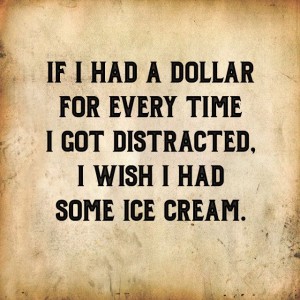Procrastination is the practice of carrying out less urgent tasks in preference to more urgent ones, or doing more pleasurable things in place of less pleasurable ones, and thus putting off impending tasks to a later time, sometimes to the “last minute” before a deadline.
Is procrastination a good or an evil…Which quote fits you best?
“Never put off for tomorrow, what you can do today.”
– Thomas Jefferson
or
“Never put off till tomorrow what may be done day after tomorrow just as well.”
– Mark Twain
Procrastination is so easy to come by, distraction is now literally at our finger tips. How easy is it to get lost in the world of the on-line abyss, with email, social media, and YouTube. (who has not wasted hours watching screaming goat videos), but believe it or not the art of procrastination has been around as long as there has been someway to record human behaviours. Why do we purposely add the additional stresses caused by procrastination? Especially in this stress ridden, hurry up and wait laden society. We all know that stress has negative impacts on every aspect of our health, including physical, mental, social and professional. However, knowing all this we do we all do it anyway. So why?
According to Tim Pychyl, a procrastination researcher at Carleton University in Ottawa, The more aversive a task is to you, the more you’ll resist it, and the more likely you are to procrastinate. Pychyl, in his research, identified a number of task characteristics that make you more likely to procrastinate. Tasks that are aversive tend to:
- Be boring
- Be frustrating
- Be difficult
- Lack personal meaning and intrinsic rewards
- Be ambiguous (you don’t know how to do it)
- Be unstructured
The more negative emotions you show toward a certain task, the more likely you are to procrastinate. He describes procrastination as the gap between intention and action…a weakness of will if you may. Who wants to spend time doing something from the above mentioned list when you could be doing something that gives a more self gratifying feeling. Accounting Vs. Reading a book, Reading a book Vs. Watching your favourite TV show, Watching your favourite TV show Vs. going to lunch with friends…But in the end the accounting still needs to get done, no matter how much you put it off.
